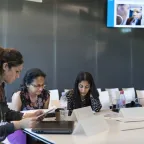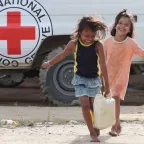What does IHL say about terrorism?
… What is the ICRC's position on terrorism? The ICRC strongly condemns acts of … " IHL does not provide a definition of 'terrorism', but prohibits most acts committed … IHL specifically prohibits "measures" of terrorism and "acts of terrorism." Article 33 …


